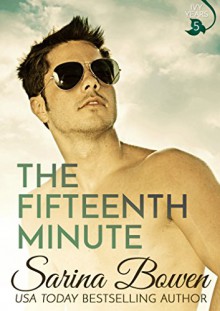
I really need to get better about writing reviews as soon as I finish a book, but I've been crazy busy lately. If I wait, I'm left with only vague impressions, no matter how many quotes I highlight or notes I make as I read.
I Married the Duke was my first book by Katherine Ashe, and I will read on in the series because I liked this fairly well even though I've been kind of "meh" on the whole historical romance subgenre lately. I also liked it despite the fact that the hero was actively misrepresenting his identity to the heroine for the first half of the book, and since dishonesty is a major turn off for me, the fact that I like this as well as I did speaks well of Ms. Ashe's skill as a writer.
The funniest thing about this book is that it hits so many of the tropes of historical romance, it's almost as if someone dared Katharine Ashe to write a book with as many stereotypical tropes as she could manage. Gypsy fortuneteller? Check. Penniless orphans? Check. Scarred hero? Check. Love affair between a lord and a governess? Yup. Mistaken identity? Marriage of Convenience? Big Misunderstanding? Sudden Blindness? Check, check, check, and check.
The plot was very, very complicated. I was able to follow it, but I think a lot of the layers and plot twists were only necessary to continue the hero's deception about his identity, which (as I've said) I could have done without.
Anabella is the middle child in a trio of sisters orphaned as children. They know very little of their past, except that it involved a shipwreck, and they have a very expensive ruby ring which a gypsy told them holds the key to learning their roots. That same gypsy foretold that one of the sisters would marry a prince, so Anabella has made that her life's ambition.
Fast forward a few decades; the girls have grown up and are in service. Anabella is on her way to France to be a finishing governess for a princess; she hopes to meet and marry the princess's brother, the prince, to fulfill the prophecy. Unfortunately, through a series of unfortunate events, she misses the ship that is supposed to take her to France and ends up hitching a ride with the hero, Luc, instead. Luc is a former naval captain with a Tortured Past who retired because he's in line to become a Duke when his uncle passes on, and he can't risk being killed in action (though he's still sailing, obviously).
During the story, Luc's uncle dies, but Luc's ascendency to the title is uncertain because the uncle's wife is preggers, and if she has a boy, the child will inherit. The wife is the sister of the story's bad guy, a priest who molested Luc and his brother when they were kids.
When Luc takes Anabella to France, he doesn't tell her who he is, even though her destination is (through one of the crazy coincidences that would never work outside of Romancelandia) a castle he owns, and the home of his brother.
During their journey, Luc finds himself in Mortal Peril and marries Anabella because he might be a Duke and she might be carrying his heir... and, oh, yeah, also because he might possibly be in love with her just a little bit. Then he dies, but not really, and Anabella is heartbroken, but maybe she'll get to marry the prince after all, so there's always a bright side.
Yeah, this is the sort of crazy sauce plot you can't really explain... but I liked it anyway. I Married a Duke hits enough familiar tropes that most readers of historical romance will find something about it appealing -- catnippy, if you will -- but it can come across as chaotic and crazy, which isn't to everyone's taste.


 Log in with Facebook
Log in with Facebook 









